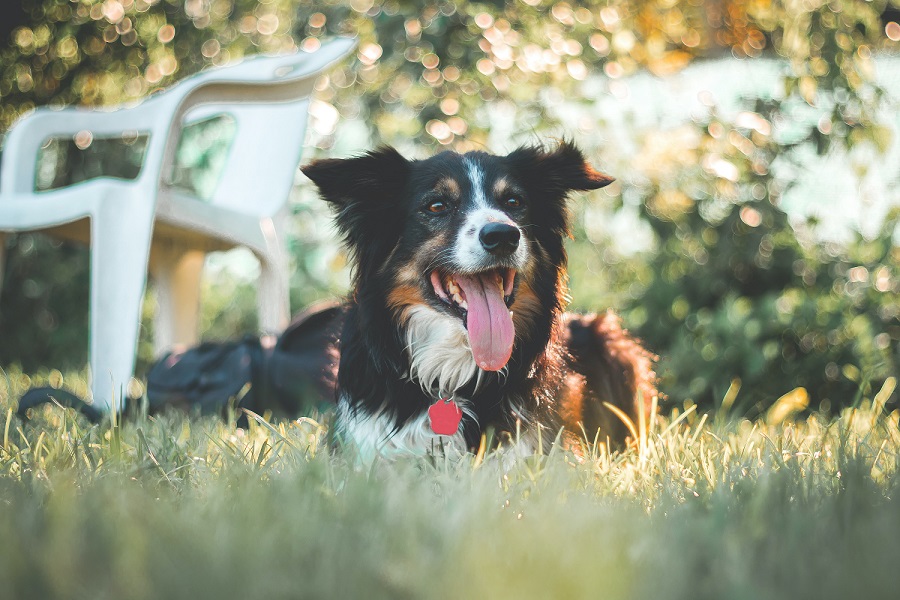News
Orchard Vet's Blog
Pet Dental Health Month
03/02/2023
Pet Dental Health Month
You may not think too much about you pet's pearly whites but dental health and oral hygiene is a huge part of keeping your pet healthy no matter what size or species.
Dental disease is the most common health problem facing dogs and cats today. By some estimates, over 85% of pets over the age of four already have permanent, degenerative changes to their gums. This is known as periodontal disease, which can progress form mild plaque and gingivitis to significant inflammation and loss of teeth.
February is Pet Dental Health month, so here’s some handy info about pet dental health!
Why should I clean my pet’s teeth?
Just like us, cats and dogs can get rotten teeth and gum problems. Brushing your pet's teeth is the best way to keep their mouth healthy.
If your pet's teeth aren’t kept clean they could become covered with plaque. This is a type of bacteria that lives in your pet's mouth. These bacteria give off a type of acid which eats into the surface of teeth. Over time, this can cause painful cavities, gum problems and might mean that your pet loses some of their teeth.

How do I clean my pet's teeth?
You can buy special toothbrushes and toothpaste for your cat and dog. It’s important to use pet toothpaste as it is safe for your pet to swallow.
It’s a good idea to start brushing your pet's teeth when they’re young. They quickly get used to it as part of their routine. It’s never too late to start, though, and older pet's will soon get used to a good scrub!
Take things slowly and get them used to having their teeth cleaned over a few weeks:
Let them taste their new pet-safe toothpaste so they think of brushing their teeth as a treat, not a chore.
Get them used to having their mouth touched. You can do this by gently rubbing a soft cloth along their gums.
Gradually move on to using a brush that fits over your finger. This will get your pet used to the feeling of their teeth being brushed.
When your pet is comfortable and ready, use a proper toothbrush. The longer handle will help you reach all of their teeth.
Other ways to keep your pet's teeth healthy
Brushing your pet's teeth regularly is the best way to keep their teeth clean and healthy. There are some other things you can do in between brushes to help maintain a healthy mouth:
You can buy toys that are designed to clean your pet's teeth as they chew on them.
Dental chews and specialist foods can also help to keep your pet's mouth healthy. Be careful not to feed your pet too many of these as it could make them overweight.
Don’t feed them too many sugary treats as this can cause more bacteria to build up on your pet's teeth.
Don’t feed your dog bones as these can damage their teeth. Bones can also break into splinters which can damage their gums and throat.
Bad breath
Have you noticed your pet's breath is a bit smellier than usual? It might be that they need introducing to a regular tooth-brushing routine. However, there are a few health issues that might cause bad breath too:
Dental disease. If your pet is struggling with rotten teeth or gum infections, brushing won’t help and can cause them pain. Your pet will need a trip to the vet to get checked out. Our vet will examine your pet’s mouth and advise you about any treatment that might be needed.
Kidney disease. Your pet’s kidneys clean their blood and filter out waste into their urine. If their kidneys aren’t working properly it can make their breath smell like ammonia (similar to the smell of wee).
Diabetes. If your pet has diabetes their breath might start smelling sweet or fruity. This is because their body is struggling to control how much sugar is in their blood.
Something stuck in their mouth. If your pet has something stuck in their teeth or gums, bacteria can build up and cause a bad smell.
Mouth tumour. This is very rare but it’s important not to ignore any signs like bad breath, excessive drooling or difficulty chewing.
It is important to get these health issues checked out. Once any underlying problems have been ruled out by our vet, you might want to start brushing to try and improve your pet’s breath.
Signs your pet has dental disease
If your pet has serious problems with their teeth they’ll need to be seen by one of our vets – brushing alone won’t solve the painful problem.
Dental disease can be very painful for your pet and it can have a big impact on how much they enjoy life. Warning signs that your pet had a serious problem are:
Bad breath (all the time, not just after meals)
Yellow/brown coloured teeth
Red or bleeding gums
Difficulty eating or not wanting to eat
Dropping food from their mouth
Weight loss
Rubbing their face
Dribbling
If your pet shows any of these signs, speak to one of our vets. They’ll be able to talk to you about the best treatment for your pet and how you can help them start to feel better.
